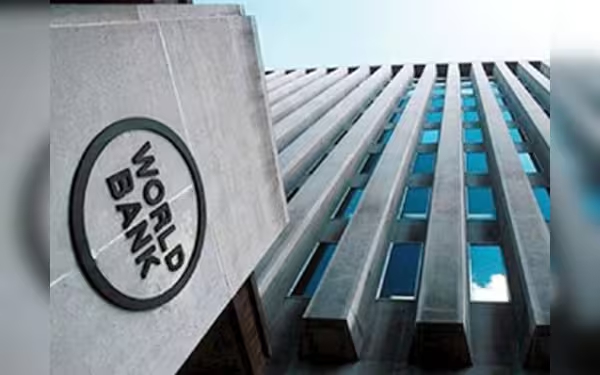Thursday, July 4, 2024 05:51 PM
World Bank Mission Praises Sindh Flood Rehabilitation Progress
- 16 satellite stations nearing completion for August operations
- Rehabilitation of hospital emergency units handed over to authorities
- Road network rehabilitation ahead of schedule, aiming for enhanced connectivity
 Image Credits: nation_pk
Image Credits: nation_pkThe Sindh Flood Emergency Rehabilitation Project in Karachi receives praise from the World Bank for progress in infrastructure development, livelihood support, and disaster risk management. Significant achievements include nearing completion of satellite stations, renovation of hospital emergency units, and ahead-of-schedule road network rehabilitation.
The Sindh Flood Emergency Rehabilitation Project (SFERP) in Karachi has recently undergone a review by the World Bank Mission. The project has been praised for its remarkable progress in adhering to timelines and maintaining high-quality work standards. Led by Senior Advisor Shoaib Siddiqui and chaired by Senior Disaster Risk Management Specialist Ahsen Tehsin, the meeting highlighted significant achievements in various project components.
According to the review, 16 satellite stations along major highways are nearing completion and are expected to be operational by August. Additionally, progress on ten district headquarters is at 68%, with plans to hand them over for operations by December. Moreover, ten hospital emergency units have been renovated and handed over to the relevant authorities.
Under the livelihood program, approximately two billion rupees have been disbursed for the rehabilitation of community workers involved in village infrastructure development. Notably, a considerable number of these workers are female, and all payments are conveniently facilitated through mobile wallets.
Rehabilitation efforts on water supply and drainage systems in various districts are advancing well, emphasizing timely completion. Initiatives for new schemes in additional districts have been launched to further boost infrastructure development.
The ongoing road network rehabilitation across 19 districts is progressing ahead of schedule, with physical work completion at 65%. The project aims to finish the road improvements earlier than initially planned, ensuring enhanced connectivity and accessibility for the communities.
The progress review of the Sindh Flood Emergency Rehabilitation Project showcases significant advancements in infrastructure development, livelihood support, and disaster risk management. The commitment to timely completion and quality work reflects a dedicated effort towards improving the lives of communities affected by natural disasters. As the project continues to make strides towards completion, it promises a brighter future for the region's residents, ensuring resilience and sustainable development.













